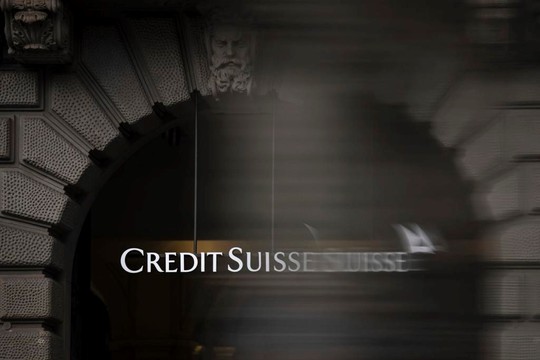Riding an oil-price boom last year, Saudi Crown Prince Mohammed bin Salman directed government-backed Saudi National Bank to make a $1.5 billion investment in Credit Suisse. Now, the Saudi investment is almost wiped out after Credit Suisse’s emergency merger with UBS Group AG, ‘The Wall Street Journal’ claims.
Credit Suisse’s meltdown also erased billions of dollars in investments made by Qatar’s sovereign fund and the Saudi-based Olayan family, making the Persian Gulf one of the biggest losers from a slide in financial stocks since the collapse of two U.S. banks last week.
The Saudis struck the deal when oil prices were just below $100 a barrel, as Russia’s invasion of Ukraine juiced energy markets.
The steep losses are a reminder of how Gulf states were burned investing in Western banks and hedge funds during the financial crisis in 2007 and 2008. The value of foreign assets in portfolios of the Gulf Cooperation Council states in 2008 fell by $100 billion to a total of $1.2 trillion, not counting the vast personal holdings of their ruling families, the New York-based Council on Foreign Relations reported in 2009.
Michael Klein, a former Citigroup Inc. banker who has long worked with Middle East clients, connected the $600 billion PIF with Credit Suisse last fall, some of the people said. The troubled bank needed billions of dollars to fund a turnaround plan that would move it away from investment banking toward wealth management. Mr. Klein was working on the overhaul as a Credit Suisse board member.
PIF connected Credit Suisse and Saudi National Bank, the kingdom’s largest bank with close ties to the government, some of the people said. Prince Mohammed gave the green light for the Saudi bank to make the Credit Suisse investment, some of the people said.
The investment made Saudi National Bank the biggest shareholder in Credit Suisse, with just less than 10% ownership.
“The Saudi market [is] the 700-pound gorilla economically in the region, and just getting them to engage with us in Saudi Arabia would be more than good enough,” Mr. Khudairy said of Credit Suisse.
The Gulf region has deep ties to Credit Suisse. Tiny natural gas-rich Qatar began snapping up shares of Credit Suisse as markets wobbled in 2008, and led a group of private investors who pumped billions of dollars into the company in the weeks after the collapse of Lehman Brothers, ultimately building up a stake worth more than $3 billion.
Qatar and the Olayan family together plowed another $6.2 billion into the company in 2011 through a special type of debt. In 2013, Qatar converted over $4.5 billion of that debt into bonds called Additional Tier 1 capital notes — which are poised to be wiped out as part of Credit Suisse’s deal with UBS.
Investor confidence in Credit Suisse began wobbling last week after the collapse of Silicon Valley Bank in the U.S. On Wednesday morning, Mr. Khudairy told Bloomberg TV his bank would “absolutely not” be willing to assist if Credit Suisse needed more capital.
According to the people familiar with the matter, Saudi National Bank officials felt out of the loop, finding out about the talks with UBS via the news media.
A group led by Saudi National Bank proposed injecting around $5 billion into Credit Suisse, ‘The Wall Street Journal’ previously reported. Under the plan, “Credit Suisse bondholders would have been fully protected.” But Swiss ministers rejected the offer.
read more in our Telegram-channel https://t.me/The_International_Affairs

 10:33 23.03.2023 •
10:33 23.03.2023 •























